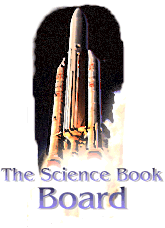 You
can purchase this book clicking here (hardback) or here (paperback). You
can purchase this book clicking here (hardback) or here (paperback).
If you wish to purchase
further titles already reviewed here, please return each
time to SBB. Using the direct links available
at our site is easier than searching by title, author, or
ISBN number.

EDITORIAL
INFORMATION
This volume contains the papers
presented at the Twentieth and Twenty-First History
Symposia of the International Academy of Astronautics,
with some notable exceptions. Subotowicz's
contribution, The Scientific Foundations of Space
Flight in Newton's 'Principia' (1687), replaces
two cancellations. Another contribution, the one by Frederick
I. Ordway III, on Schiaparelli
and Lowell, is a combination of two
papers, the first delivered in October 1984 at the
Eighteenth IAA History Symposium in Lausanne,
Switzerland; the second presented two years later in
October 1986 at the Twentieth IAA History Symposium in
Innsbruck, Austria. Rather than split these presentations
between two volumes, the author and the editor agreed
that a better appreciation of the material could be
achieved by combining them in this edition.
(Extracted form the Preface, written by Lloyd H.
Cornett, Jr.).

GENERAL
TABLE OF CONTENTS
- -Foreword. R. Cargill Hall.
- -Preface. Lloyd H. Cornett,
Jr.
- -Part I: Early Solid
Propellant Rocketry.
- -1- The 'Boun Bang Fai'
Rockets of Thailand and Laos: Possible Key to
Determining the Spred of Rocketry in the Orient.
-2- Congreve Rocketry Revisited.
- -Part II: Rocketry and
Astronautics: Concepts, Theories and Analyses.
- -3- The Legacy of Schiaparelli
and Lowell.
-4- Analysis of K.E. Tsiolkovsky's Ideas on Space
Industrial Development and Exploitation.
-5- Scientific and Technological Prerequisites
for the First Manned Spacecraft.
-6- Project Horizon: An Early Study of a Lunar
Outpost.
-7- Using Mathematical Models in Researching the
History of Rocket Space Technology.
-8- Speculative Spacecraft, 1610-1957.
-9- The Scientific Foundations of Space Flight in
Newton's "Principia" (1687).
-10- The Development of Space Flight Theory by
Soviet Scientists.
-11- Development of the Theory of Correction
Maneuvers for the First Transfer Trajectories to
Mars and Venus.
-12- K.E. Tsiolkovsky and the Development of
Twentieth Century Anthropocosmism.
- -Part III: Liquid- and
Solid-Propellants Rockets, 1880-1945.
- -13- Camera Rockets and Space
Photography Concepts Before World War II - Part
II.
-14- The Construction of a Replica of Robert H.
Goddard's First Succesful Liquid-Propellant
Rocket.
-15- An Analysis of Yu. A. Pobedonostsev's
Scientific and Technical Activity.
- -Part IV: Rocketry and
Astronautics since 1945.
- -16- The Propellant Chemists'
Contribution to Modern Rocket Flight: A Memoir.
-17- The Beginning of the U.S. Space Program: A
Memoir.
-18- The Apollo Generation: A Profile of NASA's
First Engineers.
-19- Wernher von Braun and Collier Magazine's Man
in Space Series.
-20- Apollo Scientific Exploration of the Moon.
-21- Lunar Surface Photography: A Study of Apollo
11.
-22- International Geophysical Year to
International Space Year.
-23- Project Manhigh: A Balloon-Borne Predecessor
for Project Mercury.
-24- From HF Radio to Unified S-Band: An
Historical Review of the Development of
Communications in the Space Age.
-25- Brennschluss Over the Desert: V-2 Operations
at White Sands Missile Range, 1946-1952.
-26- Thirty Years of Astronautics with McDonnell
and Douglas.
-27- Peenemünde and Los Alamos: Two Studies.
-28- The French SE 1900 and SE 1910 Rocket Sleds.
- -Part V: Pioneers of Rocketry
and Astronautics.
- -29- Georgy Nikolaevich
Babakin's Contribution tothe Develoment of
Automatic Space Stations.
-30- Yuriy Alexeyevich Gagarin: His Uniqueness,
Typicalness and Wealth of Personality.
-31- Personal Recollections of Theodore von
Kármán.
- -Numerical Index and Author
Index.

OUR
REVIEW
As is already typical of the
articles stemming from lectures held at international
symposia, these vary in depth and length. Despite this
fact, most of them will be extremely interesting for
those people who feel curious about the history of
rocketry and astronautics.
The contents, just as the
compiler himself says, range from very precise
descriptions of programs and projects, to personal
memories, to works of pure research and synthesis. The
variety in themes and the diversity in viewpoints, often
very particular ones, enrich this volume, one more in a
collection which intends to give the average reader the
facts that constitute a more or less important part of
the history of astronautics and the men who made it
possible.
Reviewing the names of some of
the authors of these papers will suffice to show the
great quality enriching this book: let's consider then,
among them, Frank H. Winter, Frederick I. Ordway
III, Mitchell R. Sharpe, Ron Miller, William H.
Pickering, Wm. D. Compton and Charles D.
Walker. A treasure in information, occasionally
unavailable in divulgative popular literature, this book
must belong to the library of true space lovers.
|
![]()

![]()